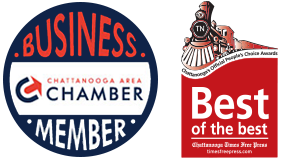The world as we knew it has changed and it may never be the same again. As we start out this new year, let’s look at some trends in HR that are a result of the changes that have taken place over the last two years.
Hybrid and Remote Work. The past two years have taught us that work can be accomplished in almost any location and employees don’t have to be in the office to do their job. This does create some challenges with employees feeling connected to their fellow workers and the organization, but employees are willing to accept that drawback in exchange for the benefits of workplace flexibility. A survey conducted by GoodHire, a background check provider in Redwood City, Calif., shows that 85% of respondents only want to apply for roles that offer workplace flexibility. Employers who are averse to employees working remotely are going to face challenges hiring and retaining their talent. Respondents say companies that fail to include remote work options for their employees will: lose major talent (74%), struggle to get applicants (67%), need to compensate by increasing starting salary offers (64%).
Prioritizing Employee Wellness. Wellness includes not only physical wellness and preventing sickness but also maintaining good mental health. A survey conducted by Mercer in 2019 showed that 44% of respondents considered addressing employee mental health was a priority. In our post-pandemic world, that number has jumped to 76% of employees. Employee wellness has become a much higher priority as we have been battling a physical illness as well as concerns about maintaining mental health during the pandemic.
Reskilling and Upskilling Talent. Reskilling is learning new skills for new roles and upskilling is learning new skills to perform an existing role in a more efficient way. As the Great Resignation continues, hiring and maintaining talent will continue to be at the forefront of HR professionals’ minds. According to a survey by PricewaterhouseCoopers, 50% of workers will need upskilling in the next 5 years. A great upskilling program can make it easier to close skill gaps, help people think more strategically about the organization and unlock innovation and drive transformation. The important thing to remember is a “great” upskilling program is experiential and teaches adult learners the “why” behind the “what”.
The world of work has been changing and will continue to change. It is up to us as HR professionals to be aware of the changes and how we can help our organizations thrive amidst the change. Do you want to learn more about any of these topics? Silberman Group can help with that.
jennifer.webster@thesilbermangroup.com


